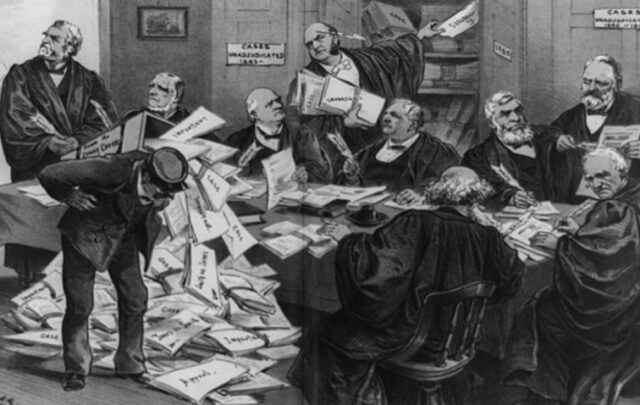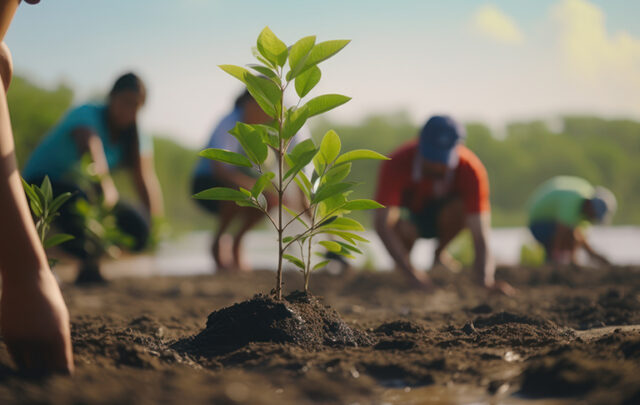George Monbiot, a journalist and public intellectual whose work addresses a wide range of environmental and political issues, published a book last year entitled, ‘How Did We Get Into This Mess?’ Since then we’ve had Trump and the Brexit vote.
Prompted by the sense that we are living through a moment of transition, his latest book, ‘Out Of The Wreckage: A New Politics for an Age of Crisis’, attempts to sketch a way forward. Most important to this project, he argues, is a political ‘narrative’ that can gain traction as the new ‘common sense’, carrying within it our values and the society that we want live in. But the book is also full of practical proposals, from land value taxes and community land trusts, to democratic reforms and ‘Big Organizing’.
Nick Dowson: How long had you been working on Out Of The Wreckage?
George Monbiot: Most of my books have taken about three years but I worked on this largely for about a year. It’s been a mad rush, because we felt there was this great opportunity, as the old system begins to collapse and new systems begin to emerge. Obviously all sorts of new monsters could emerge, and they will do so if a more coherent vision of a better world is not produced.
The book isn’t at all comprehensive: I’m trying to sketch out possibilities based on something that is neither 20th century neoliberalism nor 20th century Keynesianism. We need a new politics, not least because neither of those doctrines has any hope of resolving the environmental crisis. Thanks to the quite remarkable findings of a whole range of sciences, we now have the basis for telling that story.
Why do you put so much emphasis on the need for a new ‘narrative’?
The reason we need a narrative is that narratives translate into what we perceive as common sense. People look for sense in the world. That is not the sense provided by evidence, by facts and figures, or the sense provided by policies: it’s provided by stories. We’re creatures of narrative, we’re innately predisposed to hear stories. There are very good evolutionary reasons for this: [humans have] navigated the ecology in which we were immersed through understanding, and that understanding was transmitted by means of stories.
When someone talks politics what we look for is the story that they are telling. If they do what Hilary Clinton did – reel off facts and figures, putting a rational case – then people switch off. For a government to take power which is sufficiently radical, we need that new political narrative, and we need it to be accepted across the majority of the political spectrum as common sense, as Keynesianism and neoliberalism have been.
The only way you can change a story is to offer a new one. And you can do so only by producing a better story.
If readers do one thing after reading the book, what should it be?
I’ll give you two things which are of equal importance and appeal to different kinds of people.
One is helping to create the participatory culture that is crucial for political transformation. That is done at the local level, you don’t need anyone’s permission to begin. You can do it on your doorstep: setting up community projects that greatly strengthen people’s attachment to each other, their location, and the idea of themselves as political agents.
The second comes in at the other end: participating in the new model of political organization, which has proved to be highly effective, ‘Big Organizing’. Volunteers training other volunteers, taking on the tasks that had previously been reserved for staff; this is transforming the prospects for radical political parties.
Do you think the book is relevant to people all around the world?
Well, it’s definitively not just about Corbyn in the UK, or even much about Trump. I’m trying to talk to people worldwide, and to people not just in 2017. In a way I feel it’s less relevant to people in the majority world, because much of what I’m doing was worked out there first. To an extent, I’m trying to bring some of the amazing work that’s been done in the majority world to the rich world.
For someone from Britain to go to any of the poorer nations and talk about community development or participatory budgeting is like teaching your grandmother to suck eggs. These concepts are far more developed in majority world nations – it’s their lessons we have to apply here.
One way I hope my book may be useful throughout the world is in developing the new overarching narrative. It’s a two-step process: the first is to tell this story, the second is to fill in some of the gaps of how it might be implemented.
How hopeful do you feel for the future?
It’s like the early 1930s, it could flip either way, or somewhere else completely. This is why, for me, it’s so important to be trying to tell this new story now because what happened in the 1930s is alternative stories were not being told. So some really dark stories – the Nazi story, Stalin’s story – got told instead.
That’s where we stand today, at the great rupture, and it’s up to us whether we make something amazing of this, or allow the forces of demagoguery and reaction to make something very bad indeed.
And it’s not down to chance. It won’t be down to chance, we have to seize the day. Carpe diem.





